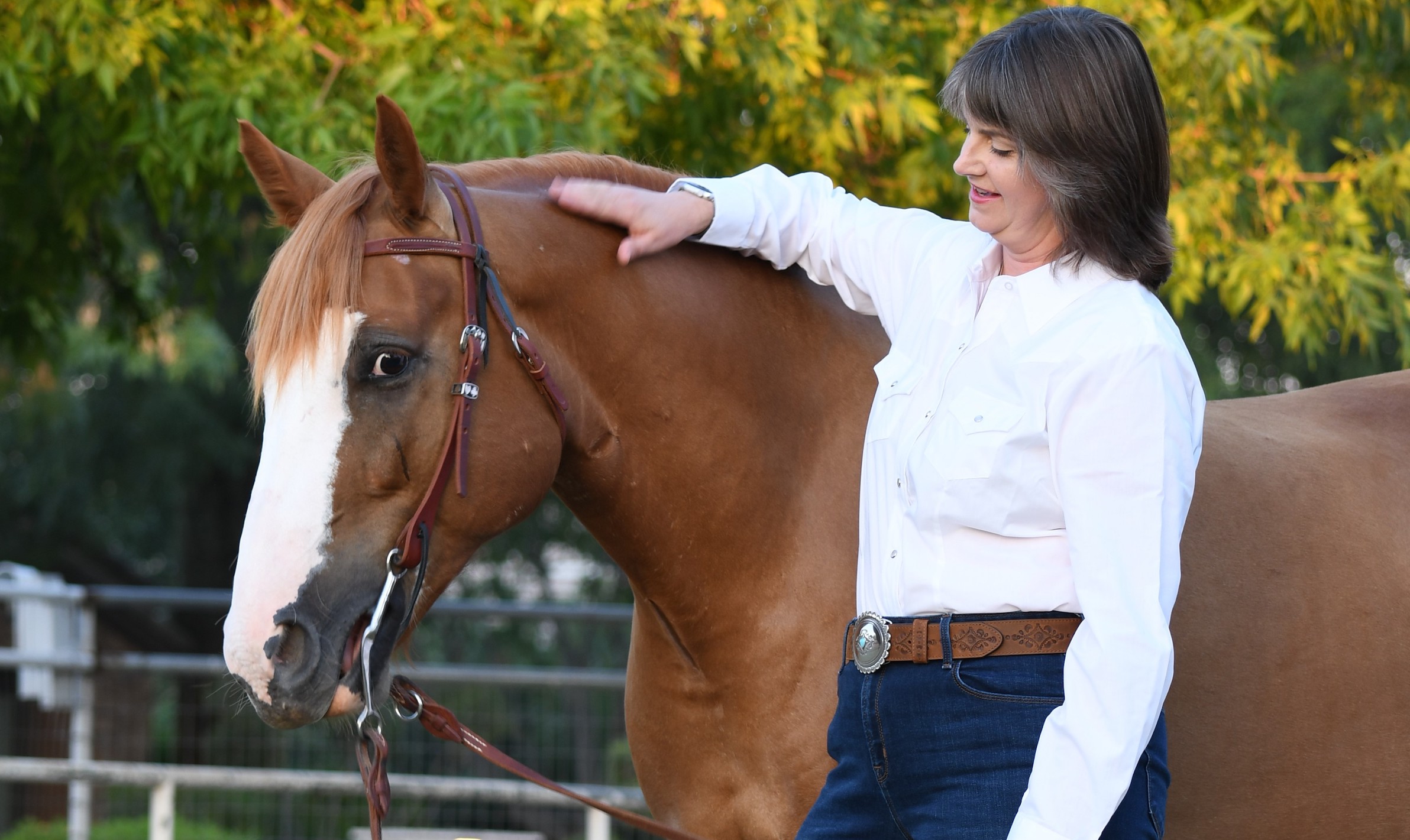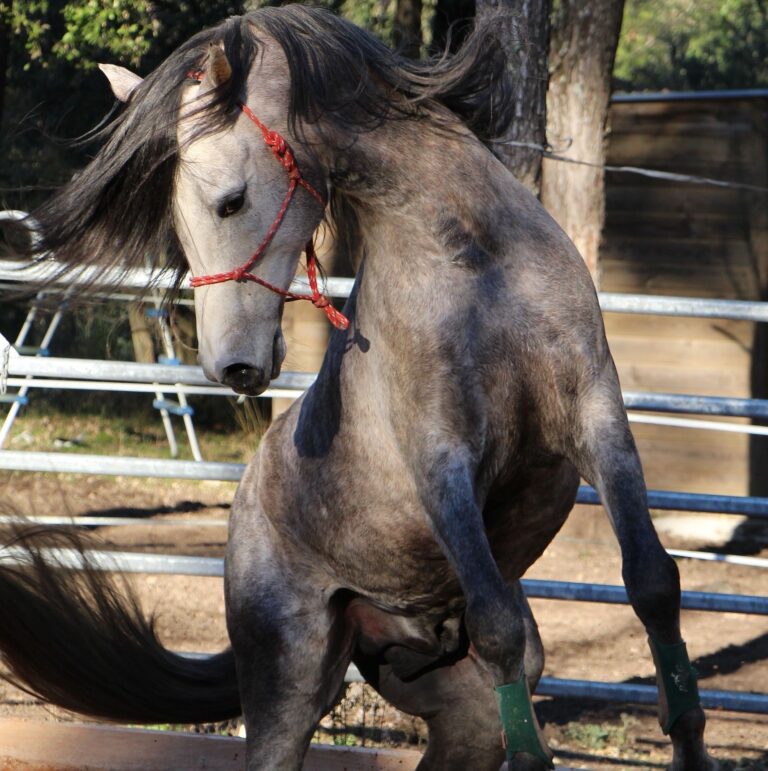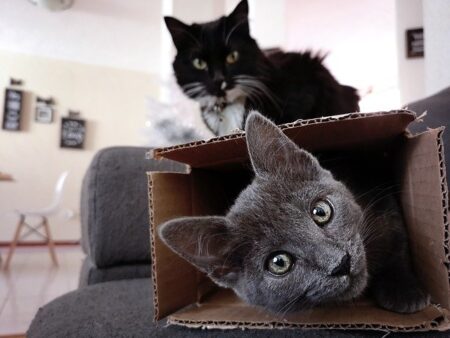
Is your horse generally a scorching mess? Do you marvel what might be the reason for his nervous or agitated habits?
For insights, I chatted with Clair Thunes, PhD, an equine nutritionist who’s additionally an achieved horsewoman. I met her initially via my daughter’s involvement in Pony Membership; as we speak Dr. Thunes serves because the District Commissioner for the Salt River Pony Membership in Gilbert, Arizona.
This lifelong horsewoman is aware of horses on the in and out. Right here’s what she mentioned concerning the attainable causes to your horse’s scorching habits.
1. It’s the Feed
Energy present vitality, and in the event you’re feeding extra energy than your horse requires for the work he’s doing, he might have extra vitality than he is aware of what to do with.
Internet outcome: antsy, fretful horse.
“It’s Energetics 101,” says Dr. Thunes. “If you happen to overfeed energy—nonstructural carbohydrates like grain particularly—that may amp up your horse’s vitality ranges.”
She advises you to test your horse’s body-condition rating.
“If he has extra situation—that’s, an excessive amount of weight—then re-think your feeding plan. Begin with, Does my horse even want a concentrated feed in any respect? Can I keep his weight and dealing capability simply feeding a good-quality hay? The reply could also be sure.”
[HERE’S HELP: How to use the Body Condition Scoring.]
She provides that ration-balancer merchandise are a great way to supply a complement of protein and vitamins in a small quantity of feed.
For notably simple keepers, a lower-calorie, stemmier grass hay could also be useful. “A hay like that may have fewer energy per pound,” she notes.
A warning: Dr. Thunes says be certain not to wind up ravenous your horse in an try to manage his habits. You need him content material and calm—not uninteresting and malnourished.
[RELATED: Drug-free supplements to help calm your horse.]
2. It’s Pent-Up Power
This one is expounded to purpose #1, however even when a horse isn’t getting overly wealthy feed, he should be scorching if he’s getting too little train.
“We predict we give our horses loads of alternative to maneuver after we experience for an hour, then lock them up for the remainder of the day,” explains Dr. Thunes. “However our exercises, even when vigorous, aren’t the identical as strolling round all day—what horses do after they’re turned out as an alternative of confined.
“Plus plenty of horses simply don’t work that arduous when ridden.”
So, clearly, the extra turnout the higher.
She provides that in case your horse is turned out 24/7 and nonetheless appearing foolish, it might be an nervousness drawback (see #3).
[RELATED: How to calm a hot horse under saddle.]
E-book:
How one can Suppose Like A Horse: The Important Handbook for Understanding Why Horses Do What They Do(As an Amazon Affiliate, we earn from qualifying purchases made via affiliate hyperlinks.)
3. It’s Lack of Psychological, Bodily Consolation
Confusion and uncertainty in your horse’s thoughts could cause him fear and agitation, which can present in his habits.
“Once we ask our horses to do issues they don’t know the right way to do, it creates nervousness and stress,” says Dr. Thunes. “The horses don’t perceive, and so they ‘inform’ us that in methods we don’t respect!”
The answer is to be sure you’ve taken your horse via all of the required primary steps main as much as no matter you’re asking of him, so he’ll have the flexibility to know and comply.
[HERE’S HELP: How to set your horse up to succeed.]
Bodily discomfort may make a horse act up. Dr. Thunes says her daughter’s pony is an ideal instance.
“He began having points going ahead,” she says. “He would kick out when requested to trot. It turned out his topline had developed and, in consequence, the saddle we’d had professionally fitted 4 months earlier than was now too slim and pinching.
“One new wider-treed saddle later, his discomfort was remedied and he was a a lot calmer, happier pony.”

4. It’s a Poor Match
It may be arduous to confess, however generally a specific horse might merely be “an excessive amount of” for us. In case your horse’s inborn disposition and vitality stage—that’s, his spiritedness—are above your present stage of using ability and skill, he might at all times really feel too scorching for you.
“Your nervousness will create stress within the horse, and that may additional stimulate his high-strung habits,” says Dr. Thunes. “Your horse will present you the place your weaknesses are! And the connection between the 2 of you received’t be there, as a result of the belief isn’t there.”
In a scenario like this, that you must be the one to vary. That you must elevate your ability stage, maybe by taking classes on a mount you are feeling extra snug on.
Get skilled steering, and if really useful, end up a extra appropriate match and let your present horse go to somebody who can higher take care of him.
[RELATED: Never, *ever* give up on your horse?]
Ultimately, says Dr. Thunes, “There are only a few ‘unhealthy’ horses—and people which can be have been made that means by mishandling. Know your horse nicely, perceive what he’s telling you, and reply appropriately. And keep in mind that it generally ‘takes a village’ to determine issues out!”
[RELATED: Help your horse stay calm at a horse show.]







